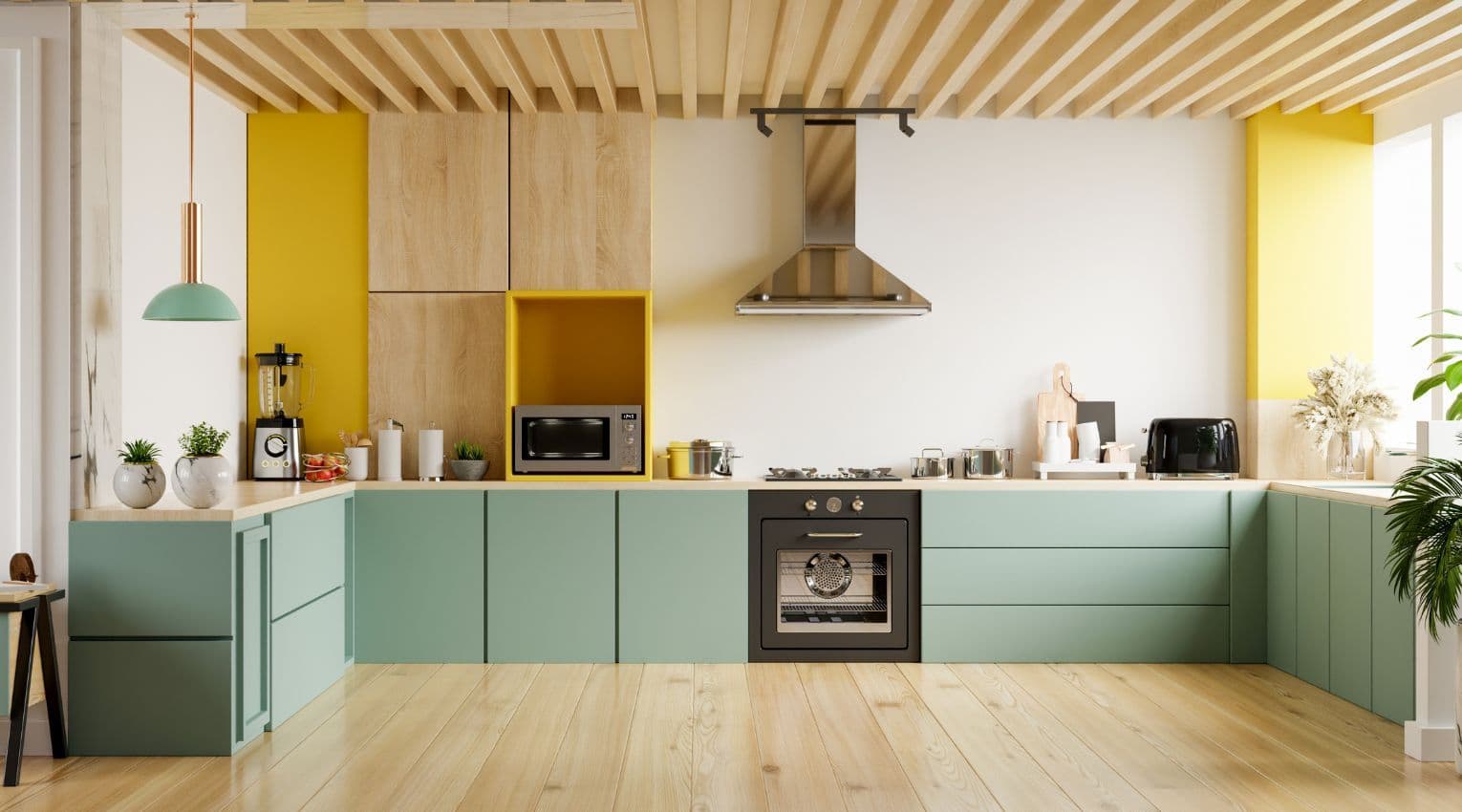3 Things You Should Do Before You List Your Home for Sale

Selling a home can often feel more stressful and time-consuming than buying one. Not only do you have to get your home in tip-top shape, but you also have to keep it that way while juggling showings, open houses, and everyday life. If you’ve already purchased your next home, the stress quickly multiplies as you potentially juggle multiple mortgages while you wait for your home to sell. Understanding the best time to put your house on the market and the most effective ways of preparing your house for sale will ease that stress (and hopefully speed up its time on the market).
To make the process easier, Zillow recommends giving yourself at least two months to get your home ready for its listing debut. Here are three steps to take during that time to ensure your home-selling experience is as low-stress—and lucrative—as possible.
1. Run the Numbers
Before calling a listing agent, you want to make sure you’re emotionally and financially ready to sell your home. Only you can answer whether you’re ready to move.
Finance personality Dave Ramsey recommends staying in your current home until you’ve built enough equity to pay off your remaining mortgage balance and put 20% down on the purchase of a new property.
You’ll also want to make sure you have enough cash in the bank to cover the costs of movers, storage, and making any necessary repairs or upgrades to both the new and existing homes.
When is the best time to sell a house?
If you have the flexibility, wait until May to sell your home. Homes sold in the first two weeks of May traditionally sell six days earlier than the average listing. They also net more than $1,500 more on average. Of course, the best time to sell your home can depend on other factors and can vary regionally, so it’s worth doing your research and asking real estate agents for their opinion. The best time to sell a home in Massachusetts, for example, may not be the same for the market in California.
2. Find Comparable Homes in Your Area
To calculate how much equity you have in your home, you can get a formal appraisal or you can look at what real estate agents call “comps.” Short for “comparable sales,” comps are homes that recently sold in your neighborhood and are similar in condition and size to your own.
These can help you gauge how much you can get for your property when it’s time to list. They can also help you judge how long it may take to sell your home. If all of the similar comps were on the market for months, you may be in for a long ride. Be sure to pay attention to how much they sold for and how much they were listed for.
Read How to Predict the Appraisal Value of Your Home for more details.
As you’re scrolling through nearby comps, consider the condition of each home. Do they all have updated bathrooms? A recently renovated kitchen? This will give you a sense of what renovations you can make on your home to attract the attention of potential buyers, sell your home faster and increase your profits.
3. Determine Which Renovations Are Your Best Investments
Now’s not the time to strip your home to the studs or build an addition. But with a few smart tweaks and weekend projects, you can increase your home’s appeal—and profit potential.
For more details on which home renovations are your best investment, read Selling Your Home? Get Top Dollar by Tackling These Renovations First
Focus on First Impressions
Sprucing up your home’s exterior is an easy way to make the best first impression with potential buyers.
“Curb appeal can be improved by some basic efforts such as power-washing the home’s exterior,” says Rhoda Wheeler, a Realtor at Hoffman Real Estate Group. She also recommended spending a weekend refreshing the mulch, trimming back overgrown plants, and placing a few eye-catching flowers near the entryway.
Adding a fresh coat of paint to the exterior walls that face the street, or at least touching them up, can also boost your home’s curb appeal.
Clean Up the Kitchen
Many real estate agents agree that the kitchen is one of the most important rooms in the home. But chances are yours doesn’t need a gut job to get the attention of potential buyers.
Small upgrades like freshly painted cabinets or new door hardware can make your kitchen, and your home, more appealing.
If you can swing it, some new appliances could also help your home sell faster. These may not offer you a full return on investment (you’ll typically only be able to recoup about 87% of the costs on a minor kitchen remodel). But if a new $600 range helps your home sell faster, then it may seem worth every penny.
Beautify the Bathroom
The bathroom is another space that can make or break a sale.
“In most cases, almost overwhelmingly, it is beneficial to get a bathroom remodel done before selling a home,” real estate agent Jacki Shafer told Homelight. “My attitude has always been to put your very best foot forward whenever possible. If your bathrooms are tired and need sprucing up, it’s always a good idea to do that.”
Even if you can’t pull off a major remodel, you can freshen up a dingy bathroom by re-grouting the tile, replacing the caulk, and buying new mirrors and fixtures. A fresh coat of light-colored paint can also make a bathroom more appealing.
How to Fund Your Renovations
Once you have your to-do list made, it’s time to estimate the expenses and compare them to your anticipated returns.
Read 5 Ways to Build Your Cash Flow for a Home Renovation
The best way to fund your home renovation really depends on you. You can dip into savings, take out a loan, put them on plastic, or you can avoid high-interest credit card fees by utilizing a home equity investment. You can receive a percentage of your home’s equity now in exchange for a share of the home value at the time you decide to sell. With no monthly payments, Hometap may be a smart way to fund the upgrades that will hopefully lead to a bigger payout on signing day. And with no monthly payments, you can focus on making the repairs and moving into your next home.
The more you know about your home equity, the better decisions you can make about what to do with it. Do you know how much equity you have in your home? The Home Equity Dashboard makes it easy to find out.
You should know
We do our best to make sure that the information in this post is as accurate as possible as of the date it is published, but things change quickly sometimes. Hometap does not endorse or monitor any linked websites. Individual situations differ, so consult your own finance, tax or legal professional to determine what makes sense for you.




